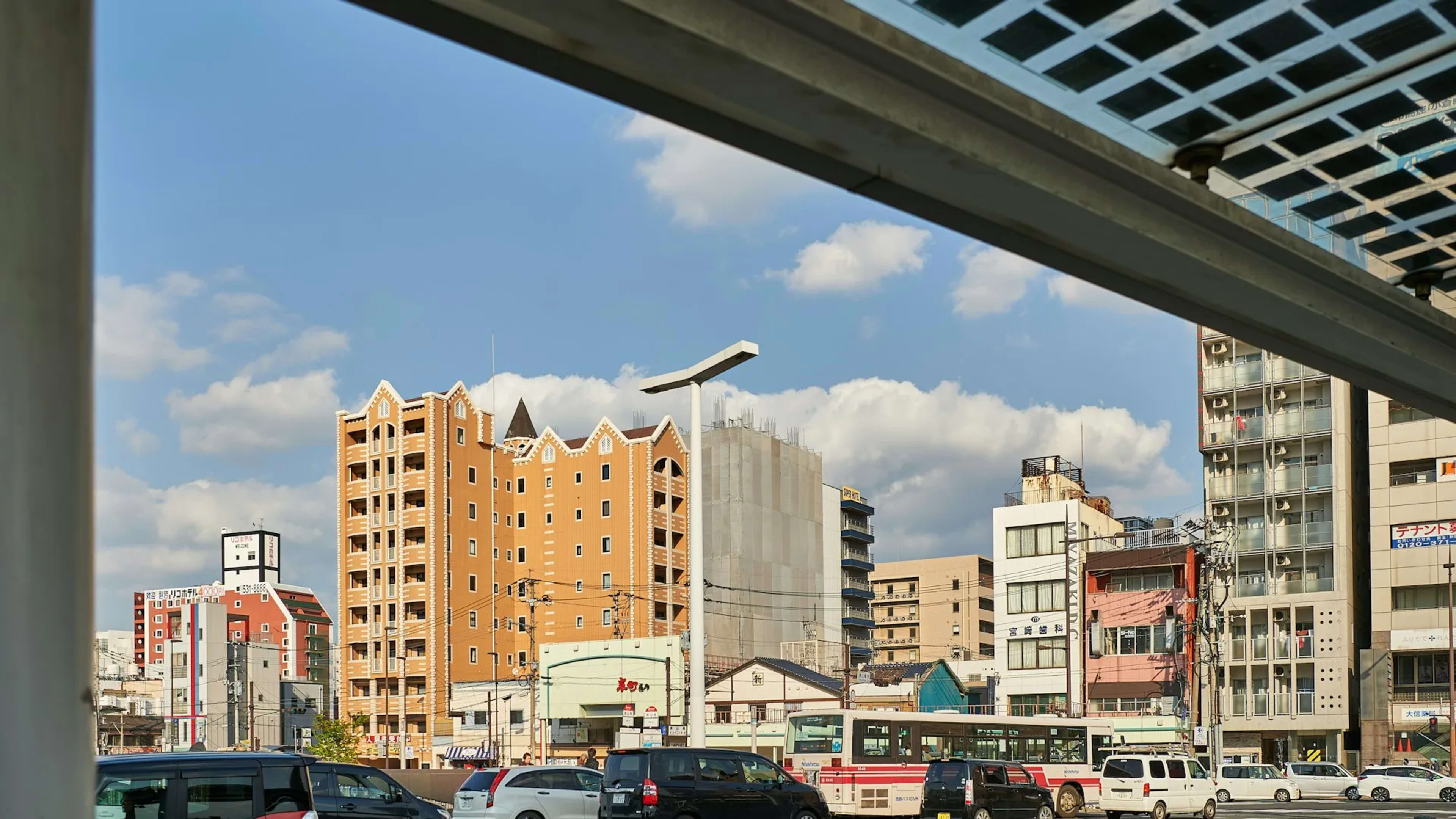Location & Transportation
The cruising experience in Fukuoka starts at the bustling port area. The Bayside Place Hakata Pier serves as a striking marine terminal with plenty to see. Inside the modern terminal building you’ll find an array of restaurants, stylish boutiques, and an 8-meter tall aquarium that houses around 1,200 fish. In the evenings, a bay side show using dazzling fountains and laser beams is a highlight for many visitors.
Fukuoka actually has two cruise ship terminals in Hakata Port:
- Fukuoka Chuo Wharf: Most cruise ships dock here. Note that it’s not within walking distance of Bayside Place or the heart of the city.
- Hakata Port International Terminal
If you wish to head into the city center from Chuo Wharf, a taxi ride (about 4 km) will cost roughly 2000 yen. Fukuoka’s compact layout and extensive subway network make getting around very convenient, whether you prefer a quick taxi ride or the underground system that connects key neighborhoods like Hakata, Tenjin, and Nakasu.
Sightseeing
Fukuoka’s history is deeply woven into its urban fabric. You’ll find that the city was once divided by a river—with the port town of Hakata serving as a merchant hub and Fukuoka as a samurai castle town. The two merged in 1889, and today Hakata remains the lively central district where the main railway station and much of the traditional charm reside.
Strolling through the city, be sure to explore:
- Historic temples and shrines
- Bustling markets and quaint streets in Hakata
- Modern landmarks alongside traces of traditional architecture
For a deeper dive into regional history and local legends, check out local visitor centers and museum exhibitions available throughout the city.
Tours & Excursions
Fukuoka offers plenty of day-trip opportunities and local passes to help you explore:
- Pick up a Fukuoka Tourist City Pass for unlimited rides on buses and trains.
- Visit nearby Dazaifu, where you can marvel at the beautifully preserved Dazaifu Tenmangu Shrine and explore the modern National Museum set in a town famous for its role in pilgrimage, especially during the New Year.
- Head to Kurume—about an hour by train from Tenjin—to sample the region’s renowned ramen noodles.
A little travel tip when using taxis in Fukuoka: the left rear door is operated remotely by the driver, so it’s best not to fiddle with it yourself. If your destination isn’t a well-known spot, jot down the address in Japanese or point it out on your smartphone map to ensure smooth communication with your driver.
It‘s a good idea to compare shore excursion costs between what your cruise line offers and options like Viator and GetYourGuide. They often provide lower prices and include customer reviews and ratings to help you choose the best option. They may also offer more more flexible cancellation or rescheduling policies than those available through your cruise line. However, while booking independently might give you more variety and potentially better rates, be mindful of your schedule - cruise line excursions are typically coordinated to match your ship‘s schedule with guaranteed pick-up and drop-off times.
There is also a great resource for finding local guides at Tours by Locals. Tours by Locals connects you with local guides who can help you plan a private personal tour, guide you, and get you back to your ship on time. You can also check out Rome2Rio for local transportation options. It is a great resource for finding how to get from one place to another, including public transportation, taxis, ferries, and more.
Shopping
Fukuoka’s shopping scene is centered around the bustling Tenjin district:
- Explore towering retail blocks like Tenjin Core, IMS, Vivre, and Underground for acclaimed designer stores.
- Wander through the charming Tenjin Chikagai, an underground arcade adjacent to the Tenjin subway station.
- Stroll along Nishi-Dori and Oyafuko-Dori, where you'll find a mix of mainstream shops and independent boutiques.
- Visit Canal City in the Nakasu entertainment district—a uniquely designed mall offering a variety of clothing stores, specialty shops (even a Studio Ghibli goods shop), and a well-appointed theater. Don’t miss the hourly fountain show held in its bowl-shaped center.
Dining
Fukuoka is a food lover’s delight. The city is famous for its rich culinary heritage:
- Indulge in authentic Hakata ramen, a signature dish known for its rich broth and perfectly cooked noodles.
- Enjoy local street food and traditional Japanese dishes at various eateries scattered throughout Hakata and Tenjin.
- Whether you’re looking for an upscale dining experience or a cozy local restaurant, Fukuoka’s diverse culinary scene has something to satisfy every palate.
Culture & Local Events
Local Events
Fukuoka is not just about history and modern attractions—it’s also a city that knows how to celebrate its culture. Here are a few cultural tips and highlights:
- Fukuoka uses the Japanese yen (JPY); while major credit cards are accepted, many smaller establishments prefer cash.
- The city is a cash society in many instances so it’s handy to have some yen with you.
- Shops and department stores typically open around 10:00–10:30 AM and close by 7:30–8:00 PM, with some variations on Sundays and national holidays.
- Don’t tip taxi drivers or restaurant staff—service charges are usually included, and tipping is not customary in Japan.
- Be sure to check local schedules for cultural events. Fukuoka is famous for the Hakata Gion Yamakasa festival held every July—a vibrant celebration featuring elaborately decorated floats and traditional processions that showcase the local spirit.
Safety & Awareness
- When riding taxis, remember that the left rear door is controlled by the driver. It’s best to have your destination written in Japanese if you’re not comfortable communicating verbally.
- Fukuoka is a safe city, but as with any busy port area, keep a close eye on your belongings, especially in crowded markets and transportation hubs.
- In case of emergencies, dial 110 for police or 119 for fire and ambulance services.
